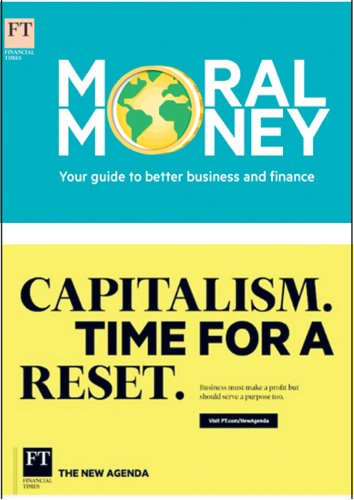When the global newspaper of finance and business calls for a reset of capitalism, it’s serious. Roula Khalaf, the first female editor of the Financial Times since its founding in 1888, talks with Brunswick’s Caroline Daniel.
Roula Khalaf took over as Editor of the Financial Times only a few months before the global pandemic, having to navigate not just a new role but how to create distinctive global journalism, remotely. Long seen as the “paper of record” for business, the FT in recent years has more openly questioned the role of business in society—including through the launch of Moral Money in 2019; its broader “Capitalism: time for a reset” brand campaign; and the launch of a Financial Literacy and Inclusion Campaign, its first charitable foundation. Roula spoke to Brunswick’s Caroline Daniel about the impact of the pandemic and how it’s accelerating the debate about the future of capitalism.
Few would have expected the FT to ever call for a “reset of capitalism.” What’s behind the move?
The FT has always been pro-business and pro-markets and that will not change. What we do increasingly however is ask tough questions about how businesses and markets should be run and the purpose they serve. Many CEOs themselves are thinking about these questions in light of rising inequality, the climate crisis, and political instability. Our role is to help provide some of the answers but also to hold business and politicians to account.
Has there been any resistance from readers?
Our readers are a diverse audience. They don’t all speak with one voice. Some have cheered us on, others certainly think that “responsible capitalism” is just a distraction and that the only solid way to judge a company is on its return to shareholders. We know that our readers are intelligent and we trust them to hear all sides and come to their own conclusions.
A number of FT pieces described the pandemic as a sort of “test of character” for business. Has business passed that test?
It’s too early to say. We have to watch the recovery over a longer term to see if businesses live up to their statements during the crisis. The other question is the extent of government stimulus beyond emergency measures and the kind of conditionality attached.

